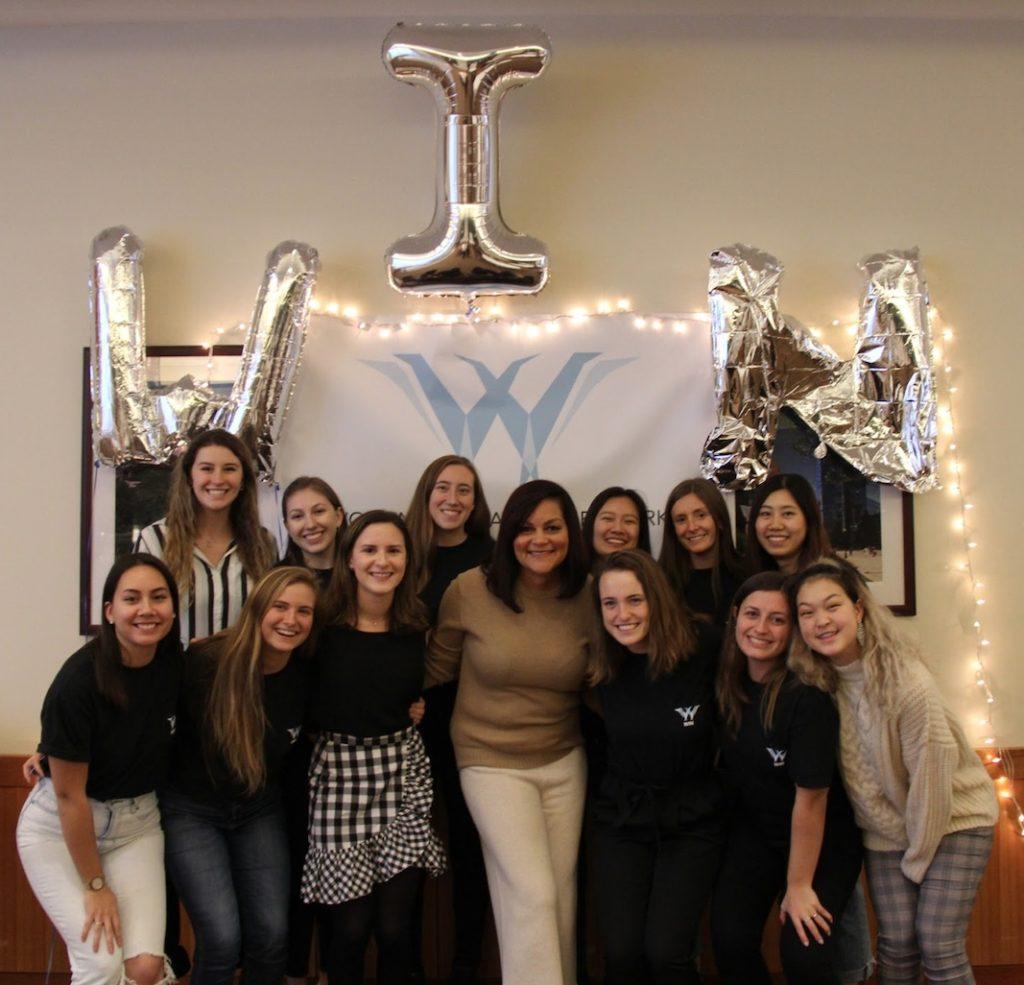The Boston College Women Innovator Network (WIN) hosted Anita Nunes, a senior vice president at information technology and services company Astreya, at their end-of-semester dinner. Nunes’ keynote address touched on the growing importance of diversity and inclusion in the workplace and her own experience as a woman of color in Silicon Valley.
The annual dinner’s aim is to bring powerful women to campus, according to Allison Ferreira, president of WIN and CSOM ’20. WIN hosts skill development workshops, guest speakers, discussion groups, and mentorship programs in order to address gender disparities in business and technology.
“We really want to focus on giving women skills so that they can go confidently and pursue interests that are in technology, business, and just be innovators,” Ferreira said.
Ferreira said that WIN selected Nunes as this year’s keynote speaker because of her unique experience as a woman of color who had successfully broken into the highest levels of the business world.
“What really drew us to Anita is her passion for diversity and inclusion,” Ferreira said. “She works in technology. She’s a female of color, and there clearly aren’t many female leaders in Silicon Valley.”
Beyond her role at Astreya, Nunes is also part of Pipeline Angels, an investment training program that aims to increase the number of female start-up investors.
In her address, Nunes emphasized the importance of having a unique “brand” in today’s professional environment. It is important to have memorable characteristics that make people remember more than just your LinkedIn profile, Nunes said.
“It is a really big deal for all of you to figure out what your brand is,” Nunes said. “It’s how you show up. It’s how people can describe you. It’s not how you look—it’s who you are.”
She also shared her own experience working in a male-dominated business environment. During her time at Cisco, she was the only woman of color in sales on the West Coast, she said.
Nunes said that while making an effort to increase diversity and inclusion is not a fad, progress will slow dramatically unless people are willing to face the topic head-on.
“We don’t want to have tough conversations,” Nunes said. “We don’t want to have conversations that make you uncomfortable in your chair, and we need to start doing a better job with those.”
She then spoke about “code-switching,” or when people alter parts of themselves, often their speech patterns, in order to better fit in. Nunes called code-switching an impediment to inclusion because it increases the pressure on women and minority employees to conform to an unfamiliar workplace environment.
“You change how you talk, you change how you dress, you change how you wear your hair, you basically change almost everything you have to be a chameleon in that situation,” Nunes said. “We want people to stop having to code-switch so much. You lose a lot of who that person is when you do that.”
Nunes closed her address by addressing the fear of failing in highly competitive fields. She encouraged the students in the audience to follow their ambitions—college is the perfect time to try something new, and it would be a mistake to not try what you really want to do, she said.
“Just go try it, especially now,” Nunes said. “This is the time to try something big. I’m in a space that I really want to be in now, but it took a long time to get there, longer than it should have because I was worried I wouldn’t be good at it.”













